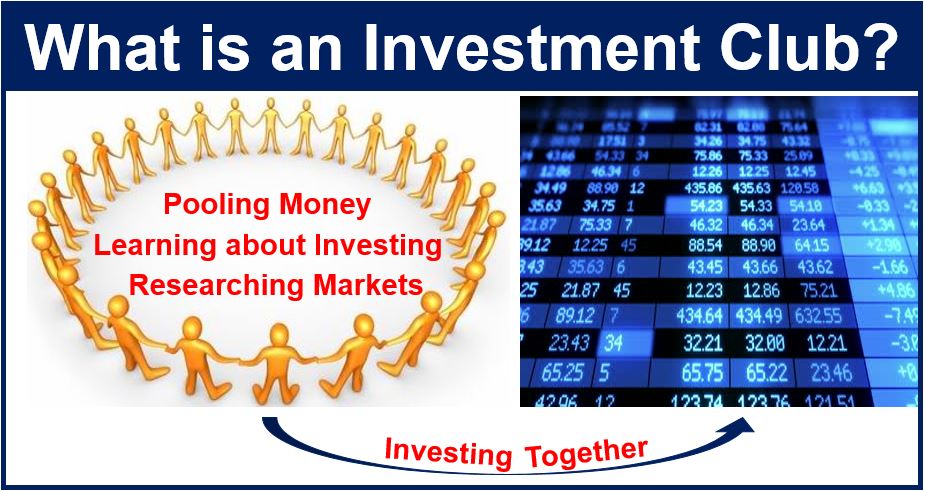An investment club consists of a group of fewer than 100 individuals who pool their resources to make investments. The group meets regularly to decide which investments to purchase and sell.
Investment decisions are generally done through a voting process. In most cases, investment clubs are set up as partnerships, with each member studying different types of investments.
These clubs say they provide members a means to learn about financial markets. Typically, members have similar interests.
According to Justin Urquhart Stewart, who wrote in The Independent, investment clubs date back to Texas in 1898, when few investments in the Wild West could be considered as safe. Investment clubs at the time were seen as a good way of spreading the risk – away from just livestock (cattle).
 People get together and form an investment club, where they pool their money, learn together, and supposedly have more successful investment outcomes.
People get together and form an investment club, where they pool their money, learn together, and supposedly have more successful investment outcomes.
The rest of the world observed the emergence of these investment clubs and liked what it saw. Today there are more than 35,000 such clubs worldwide. There are about 9,000 of them in the United States, and more than 15,000 in France.
In the UK, the concept has developed more slowly than in France, the US, and some other nations. There are only 800 investment clubs in the UK.
The US Securities and Exchange Commission says the following about investment clubs:
“An investment club is a group of people who pool their money to make investments. Usually, investment clubs are organized as partnerships and, after the members study different investments, the group decides to buy or sell based on a majority vote of the members. Club meetings may be educational and each member may actively participate in investment decisions.”
Most investment clubs are partnerships
The vast majority of investment clubs are formed as general partnerships. Some are formed as LLCs (limited liability companies), corporations, limited liability partnerships, or sole proprietorships that transfer real estate assets to a group living trust. For tax reasons, partnerships are more popular than the corporate structure.
The National Association of Investors Corp. (NAIC) urges members of an investment club to:
- invest money regularly, no matter how well or badly the market is performing,
- reinvest all income earned and capital gains,
- purchase shares in companies that are expanding more rapidly that most of their peers,
- have a diversified portfolio, i.e. not place all their communal eggs into one basked.
According to The Motley Fool, investment clubs currently hold over $175 billions’ worth of equities in their portfolios. This figure is rising by more than $50 million every month.
Video – Why join or set up an investment club?
This video explains why investment clubs are fun, and also effective in helping you get your money to make more money for you.
